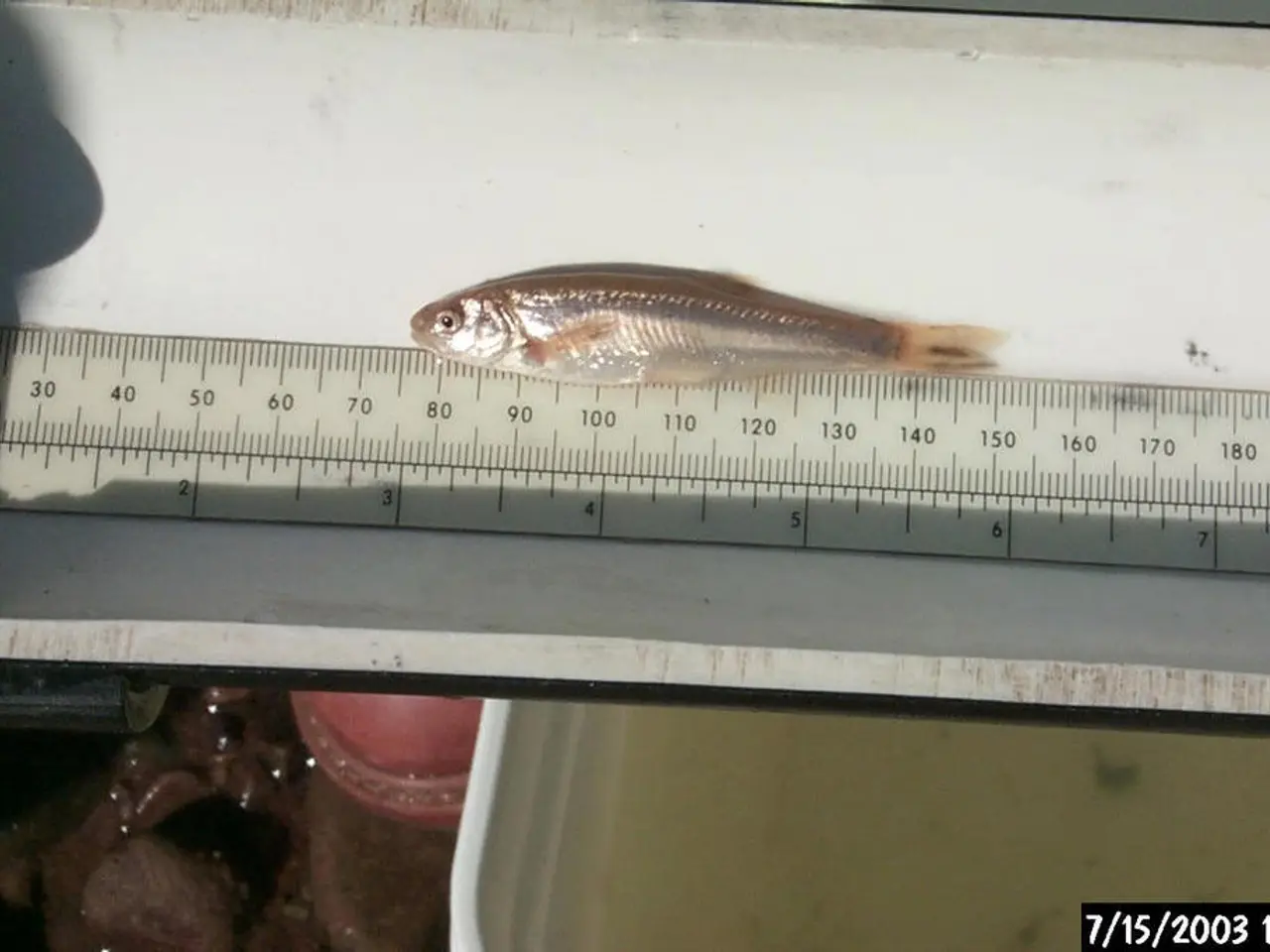Shift in Digital Publishing: Google Modifies AI Licensing Strategy, Significant Impact Ahead
Google's AI Licensing Deal: A New Era for Publishers and Tech Companies
In a significant shift in the relationship between publishers and tech companies, Google has announced a licensing deal with around 20 national news outlets. This move aims to compensate publishers for their content used in AI-driven products, marking a new approach to monetising journalism in the AI-influenced digital landscape.
The deal, which includes licensing news content for Google's AI-driven products such as chatbots and AI-generated summaries, is a response to publishers' concerns about AI-powered search features reducing their website traffic and revenue. By paying for licensed content, Google acknowledges the value of publishers' journalism and is experimenting with new partnership models to support them financially while continuing to integrate their content into AI systems.
According to reports, the number of news searches on the web that result in no click-throughs to news websites had grown from 56% in May 2024, when AI Overviews launched, to nearly 69% as of May 2025. This erosion of organic traffic has been a devastating blow to publishers, and survival now depends on adapting to an AI-first distribution model.
In the long-term, search as we know it may end, replaced by AI conversations. Direct publisher relationships become critical, and new business models emerge beyond advertising. This pilot project is designed to explore these possibilities and pave the way for a more sustainable and legally compliant web environment, with clear attribution and payment mechanisms fostering respect for intellectual property in AI-generated summaries and search results.
The impact on publisher-tech relationships includes improved collaboration, financial support for publishers, changing web ecosystem, and competitive pressure. This move follows similar licensing deals made by AI companies like OpenAI and Perplexity AI with major media firms, reflecting an emerging industry standard where AI developers negotiate directly with publishers to use their work ethically and sustainably.
In the short-term, accelerated deal-making, content strategies pivoting toward AI-optimized formats, and traffic continuing to decline are expected. Google has been conspicuously absent from the AI licensing race compared to competitors like OpenAI and Perplexity, but this move signals a new approach to compensating publishers in the AI era.
The era of free traffic from search is ending, and AI intermediaries now control audience access. Quality content is becoming scarce, forcing tech companies to pay for access, and publishers suddenly hold valuable assets in the AI arms race. This licensing pilot could create a reliable new revenue stream for publishers while keeping Google's AI fueled by high-quality journalism.
However, publishers must navigate a future where they must negotiate skillfully to extract maximum value before the transformation is complete. In the medium-term, paywalls proliferate, consolidation accelerates among smaller publishers, and new metrics emerge for measuring AI-era success. Those who hesitate may find themselves locked out of the AI-powered future of information discovery.
References: [1] BBC News. (2025). Google to pay news outlets for use of content in AI products. [online] Available at: https://www.bbc.co.uk/news/technology-59037116
[2] The Guardian. (2025). Google to pay publishers for use of news content in AI tools, as it seeks to ease tensions. [online] Available at: https://www.theguardian.com/technology/2025/may/01/google-to-pay-publishers-for-use-of-news-content-in-ai-tools-as-it-seeks-to-ease-tensions
[3] Reuters. (2025). Google to pay news outlets for use of content in AI tools, in a shift for publisher-tech relationships. [online] Available at: https://www.reuters.com/business/media-telecom/google-to-pay-news-outlets-for-use-of-content-in-ai-tools-in-a-shift-for-publisher-tech-relationships-2025-05-01/
[4] The New York Times. (2025). Google's AI Licensing Deal: A New Approach to Compensating Publishers in the AI Era. [online] Available at: https://www.nytimes.com/2025/05/01/business/media/google-ai-licensing-deal.html
[5] Mail Online. (2025). Mail Online reports catastrophic 56% drop in clickthrough rates when AI Overviews appear. [online] Available at: https://www.dailymail.co.uk/technology/article-5903711/Mail-Online-reports-catastrophic-56-drop-clickthrough-rates-AI-Overviews-appear.html
- Google's AI-driven products, such as chatbots and AI-generated summaries, will now include licensed news content from over 20 national news outlets, as part of a new era in the monetization of journalism in the AI-influenced digital landscape.
- The new partnership models are designed to support publishers financially, acknowledging the value of their journalism, while continuing to integrate their content into AI systems.
- The deal is a response to publishers' concerns about AI-powered search features reducing traffic and revenue, as over half of news searches on the web resulted in no click-throughs to news websites in 2024.
- As search may be replaced by AI conversations in the long-term, direct publisher relationships become critical, and new business models are emerging, including those beyond advertising.
- This licensing pilot project is intended to explore potential revenue streams for publishers, pave the way for a more sustainable and legally compliant web environment, and foster respect for intellectual property in AI-generated summaries and search results.
- Google's move follows similar licensing deals made by AI companies like OpenAI and Perplexity AI with major media firms, reflecting an emerging industry standard where AI developers negotiate directly with publishers.
- Publishers must skillfully navigate this AI era, proactively adapting to new formats, paywalls, and consolidation, and stays alert to emerging metrics for measuring success in the AI-powered future of information discovery, or risk being left behind.




